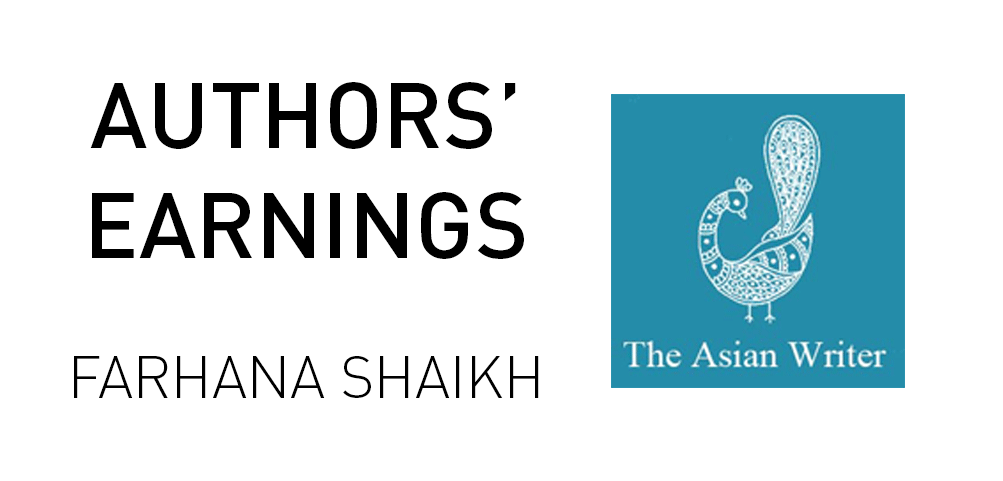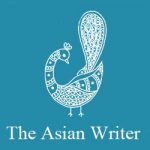
Authors’ earnings: Farhana Shaikh from The Asian Writer gives her view
After the release of key figures from this year's ALCS-funded authors' earnings survey Farhana Shaikh, editor of The Asian Writer, gives a run down of how these figures affect Asian writers.
In June this year, ALCS published the initial findings of a new survey into UK author earnings.
The study, commissioned by ALCS, and carried out by CREATe found that author earnings are in sharp decline.
Its main findings revealed that the median earnings of professional writers – that is those who dedicate over half their working hours to writing – has fallen by 42% in real terms since 2005 and by 15% since 2013.
The Authors’ Earnings 2018: A survey of UK writers, found that the median annual income of a professional writer now stands at under £10,500. In 2017 the Joseph Rowntree Foundation’s Minimum Income Standard (MIS), the income level considered to be a socially acceptable standard of living for a single person, was £17,900.
Based on a standard 35-hour week, the median hourly earnings of a professional writer are just £5.73. The current minimum wage in the UK for those over 25 is £7.83. Writers earning their income solely from writing only make up just under 14% of this group, a drop from 40% in 2005. This suggests that authors can no longer afford to write full time and are forced into ‘portfolio’ careers to sustain their writing.
Figures for ‘all writers’, made up of occasional writers and those who write part time, are much worse, with typical earnings at £3,000 a year. This is a drop from £4,000 in previous years, and a decline in real terms of 49% since 2005 and 33% since 2013.
Tony Bradman, children’s writer and ALCS chair, said: “The results of this third ALCS survey into author earnings confirm what most writers know only too well – that incomes continue to decline, and that it is harder than ever to make a living as a professional writer.”
However, publishers were quick to dismiss the research. Stephen Lotinga, CEO of the PA, said the figures were ‘unrecognisable’ to the majority of publishers and do not reflect the investment publishers are making. He called into question the evidence base of the research.
The survey, based on the responses of 5,500 writers working in a range of fields – from the stage to the screen, is the third report of its kind. The first report was commissioned by ALCS in 2005. The full findings of the 2017 survey are to be published later this year.
The creative industries are growing at twice the rate of the UK economy and are now valued at £92 billion. The publishing industry also saw its ‘best ever’ sales figures in 2017, up by 5% and breaking all previous revenue records, to £5.7 billion. This suggests that publishers are putting profits before investment in creative talent and fair pay for writers.
How do things stand for Asian writers?
“£10,500 a year would be amazing,” joked first-time novelist, Mahsuda Snaith.
Published by Transworld, PRH, Snaith’s debut, The Things We Thought We Knew was published to critical acclaim last year. She worked part time as a supply teacher while writing her first and second books and says she can’t afford to be a full-time writer, relying on other writing projects to top up her author earnings: “Recently, I have been fortunate enough to get some great commissions, writing opportunities and workshops to keep me going, but that still doesn’t mean I earn a lot…I think for people from diverse backgrounds, whether it be ethnicity, class, sexuality or disability/being alt-bodied, it’s even harder – those advances are usually smaller.”
For Snaith, managing expectations of early career writers, in light of the general public’s perception of a published author’s glamorous lifestyle is a tricky balance: “I don’t think these things should put you off writing, just know that being ‘successful’ as a writer doesn’t necessarily mean you will be a full-time writer straight away, only a few fortunate people are able to give up the day job and only J.K. Rowling can actually buy a house in the Bahamas.”
Susmita Bhattacharya was first published by an independent press, Parthian in 2015. Despite devoting much of her time to writing, she says she doesn’t earn the average £10,500 solely through writing. She teaches creative writing, leads workshops, and mentors early career writers to supplement her income. She also teaches English as a Foreign Language and is an associate lecturer at the University of Winchester. Her fluctuating income is a difficult juggling act: “My earnings from my writing is not quite uniformly spread out and depends on the kind of work I’m invited to participate in on a year-to-year basis…For a newly emerging writer from a diverse background, I feel there needs to be more openness to support and help flourish.”
Written by Farhana Shaikh, editor of The Asian Writer.
 The Asian Writer is the voice of British Asian writing and is for readers and writers interested in South Asian literature. It is both an online magazine and quarterly newsletter. It aims to provide a platform for new and emerging writers of South Asian origin as well as showcase their work.
The Asian Writer is the voice of British Asian writing and is for readers and writers interested in South Asian literature. It is both an online magazine and quarterly newsletter. It aims to provide a platform for new and emerging writers of South Asian origin as well as showcase their work.
